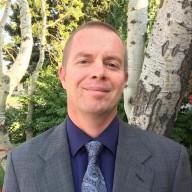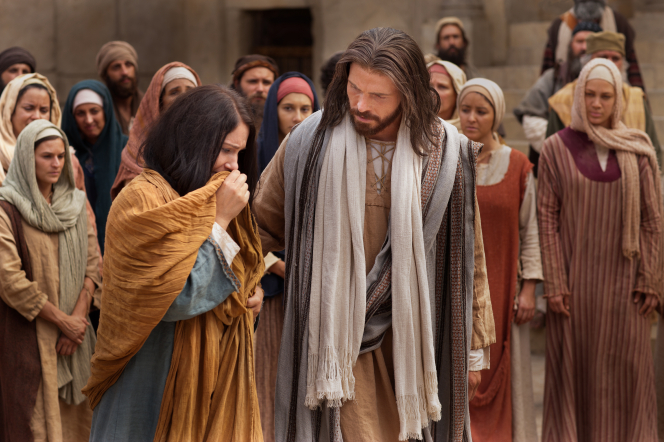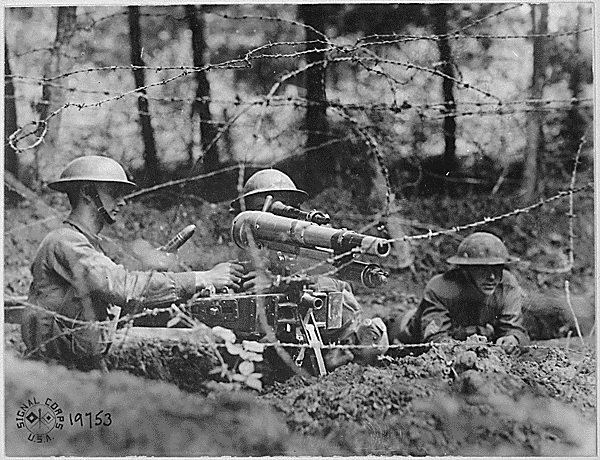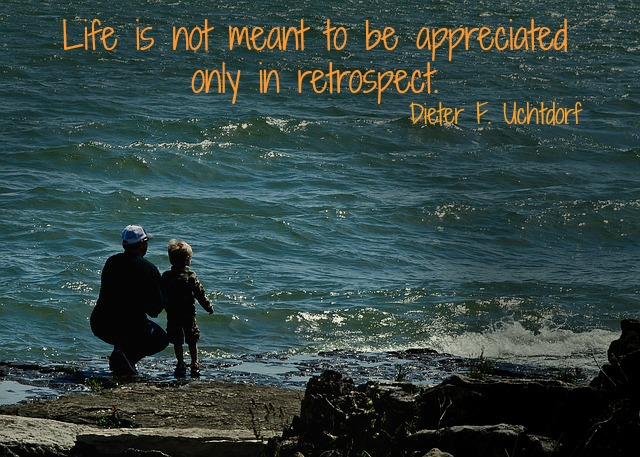Former NBA player Rudy Tomjanovich was a four-time all-star for the Houston Rockets when they were playing the L.A. Lakers in 1977. During the game, another player hit Rudy with a blind-side punch that shattered the bones in his jaw and face and almost killed him. Rudy had major surgery, and while he tried to come back, he ended up having to retire early. For years, all Rudy was remembered for was the punch that cost him his career and almost killed him. When he was asked whether he hated the other player who did this to him, he said,
I believed that if I ever were able to move on, I had to forgive. Even though I didn’t like what he did, I couldn’t go around the rest of my life being a victim. I had to forgive in order to save my own life. I have learned that refusing to forgive is like taking poison yourself and hoping that the other person will die.
President James E. Faust added similar insight when he stated,
Most of us need time to work through pain and loss. We can find all manner of reasons for postponing forgiveness. One of these reasons is waiting for the wrongdoers to repent before we forgive them. Yet such a delay causes us to forfeit the peace and happiness that could be ours. The folly of rehashing long-past hurts does not bring happiness.
What President Faust is saying is that when we refuse to forgive, we waste our energy and cheat ourselves out of happiness.
This is true. Refusing to forgive is like taking poison and hoping that the other person will die. As President Faust said,
If we can find forgiveness in our hearts for those who have caused us hurt and injury, we will rise to a higher level of self-esteem and well-being.
The Damage that Comes from Entertaining Grievances
A little over a hundred years ago, our planet was faced with twin catastrophes. One was a devastating flu pandemic, and the other was World War I. Kaiser Wilhelm II is generally recognized as the primary instigator of the war, which is widely considered to have created the conditions that led to the pandemic. Although Wilhelm had several motivations, a desire to get retribution for perceived wrongs done to himself and his country was one of his primary motivations for instigating the twin tragedies of that age.
It would appear that the world has changed little over the last hundred years. In addition to facing a major pandemic, society also has to put up with political leaders, celebrities, and social media influencers who spend tremendous amounts of energy attacking others for perceived wrongs. This is part of a cultural epidemic in which the expression of grievances is the increasingly common form of human interaction. This culture of grievances is especially harmful in a time of social isolation where human interaction is limited. But we are not helpless. Just as we can follow sound health practices to protect our physical health, we can also protect our mental and spiritual health by refusing to be a part of the culture of grievances.
We Live in a Culture of Grievances—How Do We Pull Back from It?
How do we go about removing ourselves from this culture of grievances? Should we obtain our guidance from political leaders, celebrities, or social media influencers, or is there a better source of guidance? There is a better source. In the Doctrine and Covenants, the Lord said,
Wherefore, I say unto you, that ye ought to forgive one another; for he that forgiveth not his brother his trespasses standeth condemned before the Lord; for there remaineth in him the greater sin. I, the Lord, will forgive whom I will forgive, but of you it is required to forgive all men.
This is only one of the scriptures which tells us that we need to forgive others. So, we have to ask ourselves: Why is it so important for us to forgive others? Of course, forgiving those who have wronged us may help them to change and become better people, but it may not. Thus, the more important reason why we are commanded to forgive others is because we must do so for our own welfare.
Dr. Sidney Simon, an authority on values realization, once said,
Forgiveness is freeing up and putting to better use the energy once consumed by holding grudges, harboring resentments, and nursing unhealed wounds. It is rediscovering the strengths we always had and relocating our limitless capacity to understand and accept other people and ourselves.
What Forgiveness Is—and Is Not
Of course, there are dangerous people in this world who inflict real harm on others. Forgiving others does not mean that we need to subject ourselves to abuse or allow an abuser to escape consequences. As stated by Dr. Carole Kanchier,
Just as important as defining what forgiveness is, though, is understanding what forgiveness is not. Forgiveness does not mean forgetting, nor does it mean condoning or excusing offenses. Though forgiveness can help repair a damaged relationship, it doesn’t obligate one to reconcile with the person who harmed the individual, or release that person from legal accountability. Instead, forgiveness brings the forgiver peace of mind and frees him or her from destructive anger.
When it comes to harm that amounts to criminal conduct, cooperation with prosecution is consistent with forgiveness. As it says in Alma 42, mercy cannot rob justice. One can let go of anger and hatred, and still cooperate in the justice process. Forgiveness does not require anyone to remain in an abusive situation or otherwise place themselves in danger.
Of course, we can’t pretend that forgiveness is always easy. President Faust said,
We need to recognize and acknowledge angry feelings. It will take humility to do this, but if we will get on our knees and ask Heavenly Father for a feeling of forgiveness, He will help us. The Lord requires us to forgive all men for our own good because hatred retards spiritual growth. Only as we rid ourselves of hatred and bitterness can the Lord put comfort into our hearts.
This may seem easier said than done, but we can do it with the Savior’s help.
Being More Loving and Less Judgmental
There is another aspect of forgiving others that is illustrated by the following story about J. Golden Kimball, who was a member of the First Quorum of the Seventy in the early part of the 1900’s. For those who don’t remember, Elder Kimball was a former cowboy who was known for telling it exactly how it was, and this was a time when the Word of Wisdom was not yet a strict requirement.
One day J. Golden was in a drugstore, sitting at the far end of the long counter. After he was served a cup of coffee, a man walked by, turned and looked at him and at the cup of what he was drinking. “Aren’t you J. Golden Kimball?” the man asked. J. Golden sighed and answered, “Yes I am.” The man looked disgusted and straightened up and said, “I’d rather commit adultery than drink coffee.” J. Golden looked back at the man and responded, “Hell, who wouldn’t?”
This story has two main points that apply to the concept of forgiving others. First, we need to stop being so judgmental of others. Just because someone may sin differently than we do, we need to remember that we are not perfect, and we all commit sin. Heavenly Father doesn’t love his children any less or more than others just because they make different types of mistakes. The second point is that we would be wise to be less critical. Telling random strangers in drugstores that they need to change will rarely do anything more than cause offense. The same thing goes for mere acquaintances. Only love and genuine care can be effective in helping others to make positive changes.
What it all boils down to is that we forgive others because it is the right thing to do for ourselves. Forgiveness takes away the power someone else has over us to determine how we feel. Forgiveness allows those who have been wronged to regain the power to determine how they feel about themselves. How we feel about ourselves is up to us and our Savior, and He loves us.
 By Blake Hills — Blake Hills is a career prosecutor who also teaches at the law enforcement academy. He received his JD from the University of Utah College of Law. For several decades, Blake has effectively used Star Wars quotes to persuade his children (and now grandchildren) to see things from a certain point of view. He has also found using these quotes to be an especially effective method of winning arguments with defense attorneys.
By Blake Hills — Blake Hills is a career prosecutor who also teaches at the law enforcement academy. He received his JD from the University of Utah College of Law. For several decades, Blake has effectively used Star Wars quotes to persuade his children (and now grandchildren) to see things from a certain point of view. He has also found using these quotes to be an especially effective method of winning arguments with defense attorneys.








Well written and well thought out. I appreciate the message you shared. It is one we all can benefit from. Thank you